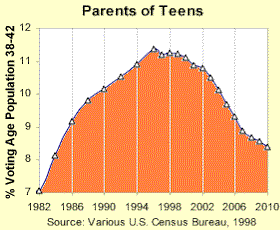|
Today's Opinions, Tomorrow's Reality
The Defeat of Anti-Tobacco WASHINGTON, DC, August 25, 1998 --
The anti-smoking crusade is dead. A summer filled with crushing defeats for the neo-prohibitionists has set back the cause by almost two years. Although the movement's lobbyists continue to talk tough about the future, their political capital has been so thoroughly exhausted that they may never be heard from again. Consider the following events: June 17, 1998 The U.S. Senate defeats the much touted Comprehensive Tobacco Settlement after a bitter year-long fight between advocacy and industry lobbyists. Smokers and tobacco companies escaped punitive taxes and advertising restrictions. Federal agencies lost billions of dollars in potential revenues. Barring an upset in this year's elections for Congress, it is unlikely that this legislation will return to the floor of either the Senate or the House of Representatives. July 19, 1998 A federal judge threw out an Environmental Protection Agency classification of second-hand tobacco smoke as hazardous carcinogen. The judge's ruling gave a scathingly critical account of politically-tainted science used to justify the agency's regulation. While the ruling does not directly affect state and local smoking ordinances, it does eliminate the main justification for enacting this kind of legislation. August 14, 1998 A federal court declared that the Food and Drug Administration does not have the authority to regulate tobacco. The ruling wiped out FDA regulations covering cigarette vending machines and sales to underage smokers. It is unlikely that the Supreme Court, given its current makeup, will come to the rescue of the FDA.2 Any of these events would be a major defeat for the movement. Together, they are catastrophic. But the worst news for the anti-tobacco crowd has nothing to do with the summer's events -- it has to do with demographics. This year marked the beginning of the end for the movement's base of supporters. The anti-cigarette ideology has been built upon the perceived horror of tobacco companies pushing cigarettes on innocent children. Not surprisingly, parents of at-risk teenagers have found this argument most convincing. It is this core group of supporters -- parents of children 13 to 17 years old -- that have formed the base of the movement's support. The size of this support base is now in decline. In 1996, the percentage of the electorate in the 38-42 year age group (those most likely to have teenage children) peaked at 11.4 percent.3 This fuddie-duddie voting share has hovered at about the same level through this year, but it is now beginning to decline.
As the baby boomers age, and their children enter early adulthood, interest in protecting them from the terrors of cigarettes will vanish. With their kids safely in college, they will likely pursue an entirely new and possibly even more annoying set of causes. The Campaign for Tobacco-Free Kids might be renamed The Crusade for Keg-Free Fraternities. Alternatively, lobbying groups may seek to pass legislation requiring all-virgin dormitories to protect Boomer daughters from the ghastly consequences of coed living. Possible causes range as widely as the fears of a middle-aged parent.
Thankfully, government control of tobacco will no longer be on this agenda.
Ten years after the first widespread smoking restrictions began facing
American workplaces, the teen smoking rate is higher than ever. With the
anti-smoking movement all but destroyed, it is time to start handling the
problem in a constructive manner. Related Web Columns: Waxman's Smoking Gun, February 10, 1998 Take Care of Your Own Kids, September 9, 1997 Marlboro Renaissance The Future Resurgence of Tobacco, August 12, 1997 Related Editorials: Resuscitating the Boogeyman, April 30,
1998 Notes:
|

